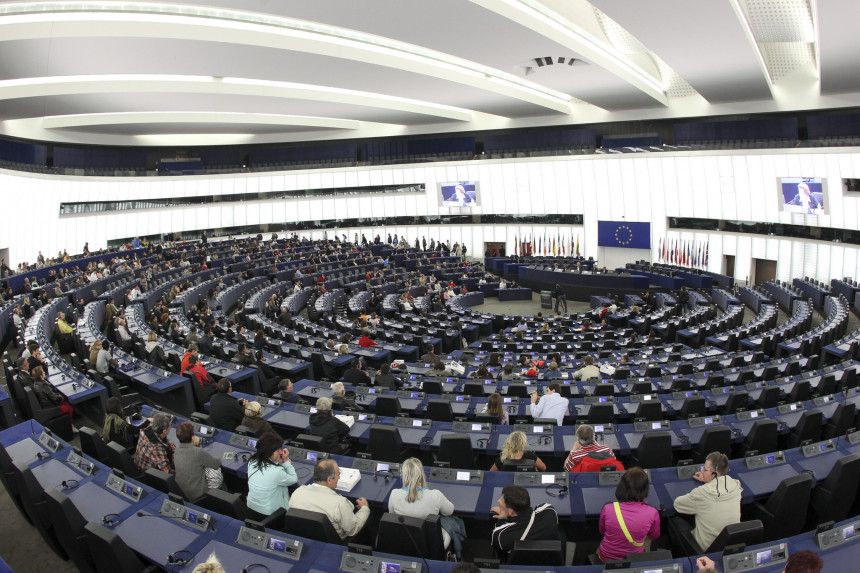Are Midsummer celebrations more important than Ukraine and MEP duties?

As the war in Ukraine continues, we continue to hear from Latvian politicians of all caliber how important it is to support Ukraine in all ways and how important it is for Europe to fight the occupying army. Many were therefore surprised that, when the European Parliament voted on the resolution calling on European Union leaders to grant Ukraine and Moldova EU candidate status without delay, only three of our eight representatives in the European Parliament took part in the vote. Perhaps the reason for their reluctance to take part in the vote was the date on which it took place - June 23.
The resolution was adopted by 529 votes to 45, with 14 abstentions. According to the minutes, most Latvian MEPs did not take part in the vote, but those who did - Andris Ameriks (GKR), Ivars Ijabs and Nils Ušakovs - voted in favor.
This is just speculation by Neatkarīgā, but it is very likely that the MEPs who did not vote chose to spend that time to get ready for the Midsummer celebrations. You see, the vote in the Parliament took place at around 11:30 Brussels time, or 12:30 Latvian time. In order to arrive in Latvia during the day and to get to the place of festivities, which is usually outside the city, in time, they had to be on the plane by then. Some MEPs may therefore have chosen to trust the majority in Parliament and not waste time proving their words with deeds.
This version is, however, slightly undermined by the absence of Dace Melbārde, MEP from the National Alliance (Nacionālā Apvienība), who did not come back to her home country to feast on cabbages and sausages, but her absence was connected with the Midsummer celebrations.
"I was not in Brussels that day. I was in Germany, organizing a Midsummer celebration with the German Latvian community," she said, pointing out that there is now a fairly broad consensus in the EU on granting status to Ukraine, so there was no reason to fear that there would not be enough votes.
Inese Vaidere, representing New Unity (Jaunā Vienotība), was more evasive in her answer. "You may have noticed that I was one of the authors of the resolution - I took part in its drafting. I simply did not vote at all that day because I was not in the European Parliament that day for various reasons," said Vaidere, stressing that "there was no doubt that this resolution would be adopted".
A slightly different view is held by Development/For! (Attīstībai/Par!) Ivars Ijabs, who both took part in the vote and still managed to make it to the celebrations in Latvia. However, not in the middle of the day - on the last direct flight, which lands at Riga Airport around 22:00.
"I voted and then came to Riga. After all, that's why I have family in Riga, to buy all the necessary things in time. Besides, I don't like to play hooky on votes, especially when it comes to important topics,"
says Ijabs, who also reveals that Ameriks returned to Latvia on the same flight as him.
Ušakovs, representing Harmony (Saskaņa), when asked the somewhat provocative question of whether he stayed in Brussels because he has no tradition of celebrating Midsummer, also pointed out that voting is one of the duties of a MEP, which is not hindered by any obstacle on the agenda of the Parliament.
"You are elected to the European Parliament according to the European Parliament's calendar. The European Parliament cannot function if it observes the holidays of each Member State - 27 countries. You have to make a choice: work or celebrate a holiday. In this case, with a historic vote that is important for our country, Midsummer must be celebrated remotely," said Ušakovs.
Remote working, to which MEPs had already become accustomed, could be another reason why our representatives found it difficult to force themselves not to indulge in celebrating a holiday encoded in the Latvian way of life. Namely, Parliament has already resumed its in-person work since May, but too many MEPs continue to work remotely. This has reached such a level that the leadership of the Parliament has decided that Members who are remotely connected are not translated, i.e. their speeches only reach speakers of the language of the Member State concerned.